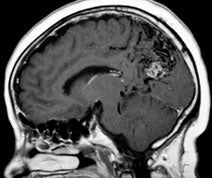The Spetzler Martin Grading Scale estimates the risk of open neurosurgery for a patient with AVM, by evaluating AVM size, pattern of venous drainage, and eloquence of brain location. A Grade 1 AVM would be considered as small, superficial, and located in non-eloquent brain, and low risk for surgery. Grade 4 or 5 AVM are large, deep, and adjacent to eloquent brain. Grade 6 AVM is considered not operable.
Note however, that this scale does not necessarily correlate with risk of treatment by embolization or radiosurgery.
Spetzler Martin Grading Scale

Size of AVM
Small (< 3 cm) 1
Medium (3-6 cm) 2
Large (> 6 cm) 3
Location
Noneloquent site 0
Eloquent site* 1
Venouse drainage
Superficial 0
Deep 1
*Sensorimotor, language, visual cortex, hypothalamus, thalamus, brain stem, cerebellar nuclei, or regions directly adjacent to these structures.
References
- Spetzler RF, Martin NA. A proposed grading system for arteriovenous malformations. J Neurosurg 1986;65:476-83.
- Iancu-Gontard D, Weill A, Guilbert F, Nguyen T, Raymond J, Roy D. Inter- and intraobserver variability in the assessment of brain arteriovenous malformation angioarchitecture and endovascular treatment results. Am J Neuroradiol 2007;28(3):524-7.
 en
en 
 Français
Français Deutsch
Deutsch Italiano
Italiano Español
Español Tiếng Việt
Tiếng Việt Kreyol ayisyen
Kreyol ayisyen